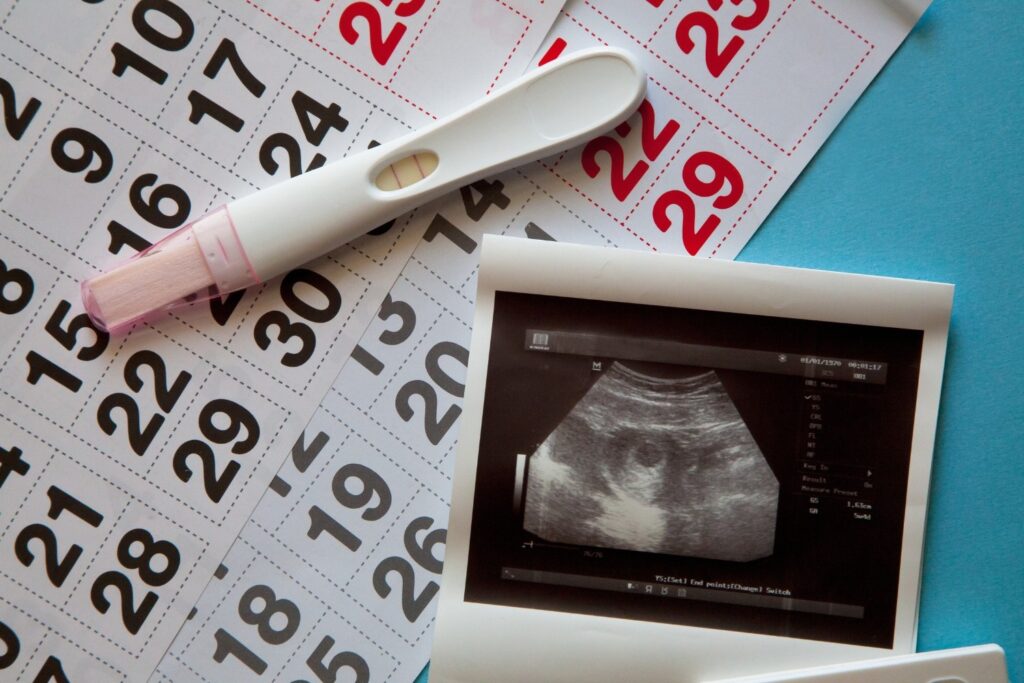Pregnancy in Pakistan is rarely treated as a private matter. Within weeks of marriage, someone at the dinner table will ask about “good news,” and the pressure quietly begins. Couples who hope to conceive often feel the stress of expectation. Those not ready face the silent worry of an unplanned surprise. Different hopes, different fears, but both shaped by the same biology no one really talks about.
The reality is that pregnancy does not happen by luck alone. The menstrual cycle follows a pattern that can be tracked with surprising accuracy. Certain days are fertile, and those days decide whether a pregnancy will happen or not. For couples trying, those are the days to focus on. For couples avoiding, those are the days to hold off. It sounds simple, but ignoring this rhythm is the reason many struggle for months without results or end up facing something they were not prepared for. Couples often arrive at Family Fertility & IVF Center with years of confusion, thinking the body works in unpredictable ways. One session with Dr. Sophia Umair Bajwa usually proves otherwise. The cycle has a clear rhythm, and ovulation follows it every month. Once that is understood, planning or preventing pregnancy becomes far less stressful. This blog gives the same clarity step by step.
The Cycle Everyone Pretends to Forget
Regular cycles come in different lengths. Some women have 28-day cycles, some 30, and some even 40. Ovulation does not politely announce itself, but it happens on a fixed principle: about 14 days before the next period starts. That means:
- A 28-day cycle ovulates around day 14
- A 30-day cycle ovulates around day 16
- A 40-day cycle ovulates around day 26
Now comes the part most people ignore. An egg doesn’t sit around forever. It survives for 1 to 2 days. Sperm, however, can stay alive inside the female reproductive tract for up to 5 days. Combine those numbers and you get the fertile window.
That’s the golden time for those craving a baby. That’s also the danger zone for those not ready for one.
The Pakistani Reality of “Trying”
In Pakistan, many couples believe pregnancy will just “happen” if they leave it to fate. Aunties swear by dates and warm milk. Friends recommend totkas. The truth? None of it matters if the timing is wrong.
Sex outside the fertile window may strengthen the bond, but it won’t produce a pregnancy. Count the days correctly and the chances multiply. Miss the window and nothing happens. Couples often rush to fertility clinics after months of “trying,” convinced something is wrong. At Family Fertility & IVF Center, Dr. Sophia Umair Bajwa points out that many of these couples are perfectly healthy. They just never learned how to calculate ovulation. Once the method is explained, the shock is almost comical.
Avoiding Pregnancy Without Pills or Devices
On the flip side, many Pakistani couples don’t like hormonal contraception. Pills are often dismissed due to side effects. In-laws raise eyebrows at IUDs. Condoms? That conversation barely survives in most households without someone looking uncomfortable. Which leaves couples relying on guesswork, myths, or prayers.
Here’s the blunt truth: the only natural method that actually works is avoiding sex during the fertile window. That’s it. Nothing else guarantees results. Not drinking some weird concoction. Not standing on one foot after intimacy. If sperm isn’t around when the egg shows up, pregnancy doesn’t happen.
But here’s where discipline matters. The cycle has to be tracked with precision. Missing the timing is how “unplanned surprises” show up nine months later.
The Fertile Window in Numbers
To make it painfully clear:
- Egg lives for 24 to 48 hours
- Sperm lives for up to 5 days
- Fertile window covers 6 to 7 days total
- Ovulation day always sits 14 days before the next period
That’s the math. It never changes. Only the length of the cycle changes.
The Social Taboo Around Pregnancy Talk
Talking about sex, periods, or fertility openly is still taboo in many Pakistani homes. Couples are often left to figure things out on their own, armed with half-baked advice from relatives. This silence is the reason so many end up at clinics confused, embarrassed, and exhausted. The irony? The answer was always hidden in basic biology taught back in school.
That’s why fertility awareness is powerful. It removes the guesswork. Removes the awkward reliance on outdated myths. It puts control back in the hands of couples. Whether the goal is to start a family or avoid starting one, knowledge of the cycle changes everything.
Why Some Couples Wait Forever and Others Get Surprises
Want to get pregnant? Count the cycle length, subtract 14, and plan sex around those days. Want to avoid pregnancy? Do the exact opposite and avoid those days. There’s no glamour in this method, no fancy packaging, no magical shortcut. But it works. The problem is not the method. The problem is consistency.
At Family Fertility & IVF Center, cycle education is often the first step before recommending anything else. As Dr. Sophia Umair Bajwa reminds patients, bodies follow a system. Those who understand it have more control. Those who don’t end up relying on chance.
Consult with a Fertility Specialist Today
Pregnancy doesn’t happen by accident. The cycle has its own timing, and ovulation is what drives it. Couples who understand that timing take charge of the outcome. Those who don’t end up guessing, stressing, or dealing with surprises.
So the surest way to get pregnant? Track ovulation, use the fertile window, and let nature handle the rest. The surest way to avoid pregnancy? Skip the fertile window, and let nature handle the rest.
For anyone facing repeated pregnancy loss, having the right people by your side makes a big difference. At Family Fertility & IVF Center, we understand that each couple’s story is different, and we’re committed to guiding them with personalized care. Schedule your consultation in Lahore with Dr. Sophia Umair Bajwa today.

